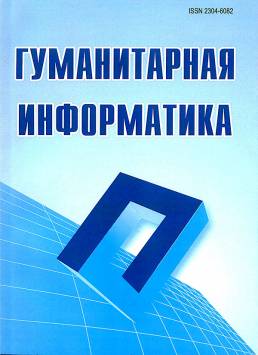HAS THE RULE-FOLLOWING PROBLEM A SIGNIFICANCE FOR ARTIFICIAL INTELLIGENCE SYSTEMS?
The rule-following problem and artificial intelligence systems are discussed in the article. This problem was formulated in tradition of analytic philosophy in the second half of the twentieth century. It consists in assertion that human consciousness is incapable to definite rules of one's activity in a exact way. What about artificial intelligence? Can we say that artificial intelligence system is incapable to definite rules of one's activity too? Author of the article tries to answer the question.
Download file
Counter downloads: 291
Keywords
Authors
| Name | Organization | |
| Ladov V.A. |
References
Inwagen P. There is No Such Thing As Addition // Midwest Studies in Philosophy <http://krypton.mankato.msus.edu/~witt/kbookbiblio.html>, Vol. XVII, Notre Dame, 1992. Р. 138-159.
Fodor J. Representations. Cambridge, MА, 1981.
Searle J. Minds, Brains, and Programs // The Philosophy of Artificial Intelligence, in M. Boden, ed. Oxford, 1990.
Kober М. Kripkenstein Meets the Chinese Room: Looking for the Place of Meaning from a Natural Point of View // Inquiry. 41 (3). S 98. Р. 317-332.
Dennett D., Haugeland J. Intentionality // The Oxford Companion to the Mind, in R. L. Gregory, ed. Oxford, 1987.
Dennett D. Evolution, Error and Intentionaly // Sourcebook on the Foundations of Artificial Intelligence. New Mexico, 1988.
Крипке С.А. Витгенштейн о правилах и индивидуальном языке. Томск, 2005.
Витгенштейн Л. Философские исследования // Витгенштейн Л. Философские работы. М., 1994.
Wittgenstein L. Remarks on the Foundation of Mathematics. Oxford, 1978.
Wittgenstein L. Wittgenstein's Lectures on the Foundation of Mathematics, Cambridge 1939. New York, 1976.
Dummitt M. Wittgenstein's Philosophy of Mathematics // Dummitt M. Truth and Other Enigmas. London, 1978.
